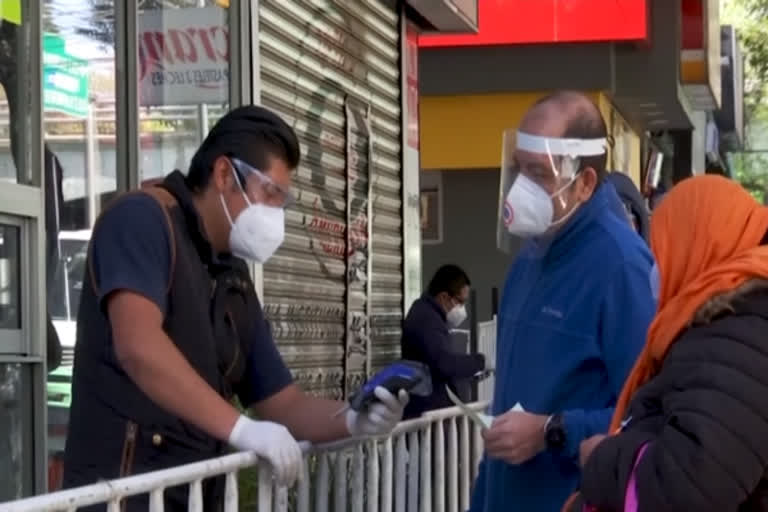Mexico City: In an atypical New Years eve marked by empty squares and nearly null celebrations, some Mexico City residents spent New Year's Eve waiting to refill oxygen canisters for relatives suffering from COVID-19.
In a city where people are afraid to go to hospitals, and where those that will go have trouble finding a bed, oxygen supplies have become a question of life and death.
Juan José Ledesma, a Mexico City retiree, got sick along with his wife and son.
When his test came back positive on Dec. 16, he had to stay home and consult a private doctor, because the local hospital had no room.
Since then, his son, who recovered, has had to go out three or four times every day to try to refill his father's oxygen tank.
"The price has risen two or three times," Ledesma said, adding:
"People shouldn't profit with necessity. Don't profit with the necessity of other people, because they are lives"
On New Year's Day, dozens of people stood in line with empty oxygen tanks in one of Mexico City's hardest hit boroughs to take advantage of a city offer of free oxygen refills for COVID-19 patients.
Jorge Infante took his place in line at 8 a.m. with three tanks he wanted to fill for sick relatives.
He had learned about the offer, only in its third day Friday, via Facebook.
Read: Mexico approves emergency use of Pfizer COVID-19 vaccine
The demand for oxygen as the virus spreads through the capital of 9 million residents has driven prices up and made lines long.
Infante said that by getting his three tanks filled for free, his family would save about $45 (US dollars) per day.
Iztapalapa, the capital's largest borough and one of the hardest hit by the pandemic, is a sprawling area of low resources.
"The economic conditions are not first world," said Carlos Morales, Iztapalapa's health director.
"That means that people are suffering to get tanks."
Morales said they are trying to fill about 50 tanks per day.
The city has seen a surge in coronavirus infections and the city's hospitals are 87% occupied, straining oxygen supplies.
That has resulted in long lines and price hikes that make it hard or impossible for some to refill tanks that, in some cases, last for only a few hours.
To top off the problems, city officials have done little to combat price hikes that doubled or tripled the price of a refill, but they have shut down a black market in which producers of industrial-grade oxygen were selling canisters for medical use.
Industrial oxygen, used to operate acetylene torches, is not as pure as the medical-grade gas.
The city government has started a program to give some people oxygen canisters or oxygen concentrators, which are machines that pull oxygen from the air and don't need to be refilled.
But there aren't enough to go around, and buying one of the machines on the private market is prohibitively expensive for most families.
Before the pandemic, basic machines started around $900, but prices have since reported risen to $1,500 or more.
AP



